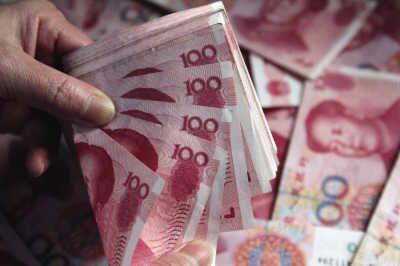BEIJING, March 28 (Xinhua) -- Chinese investors are likely to witness market liquidity tilting toward tightening in the near term, as regulators fine tune policies following upbeat domestic data and the U.S. interest rate hike that has spurred global ripple effects.
SIPHONING MARKET LIQUIDITY
On Tuesday, China's central bank, for the third consecutive business day, skipped the open market operations of reverse repos, a process where it purchases securities from banks with an agreement to sell them back in the future.
In essence, the halt meant that there was no injection of short-term funds into the banking system, which led to a net cash withdrawal, as previous maturing reverse repos Tuesday drained 70 billion yuan (10.2 billion U.S. dollars) from the market.
The decision followed a string of stronger-than-expected Chinese economic figures and fresh restrictive moves to address the property market environment in major cities, with global investors still digesting the repercussions of the recent announcement by the Fed that it would increase interest rates.
On the bright side, China's major industrial companies registered a 31.5 percent profit surge year on year in January and February in tandem with improved profitability of their main businesses, more evidence of a stabilizing economy.
Chinese bankers were also optimistic of the economic outlook. A recent survey from the People's Bank of China (PBOC) cast light on their confidence in the first quarter, with positive sentiment rising by 11.2 percentage points from the previous quarter.
However, in terms of liquidity, the same survey showed that about 20.3 percent of bankers polled said Chinese monetary policy was "relatively tight," up from only 5.7 percent in the fourth quarter of last year.
China will pursue a "prudent and neutral" monetary policy in 2017, with the broad money supply (M2), a key measure for liquidity on market, to grow by around 12 percent, one percentage point lower than the 2016 target, according to the government work report, which was delivered at the annual parliamentary session earlier this month.
Chinese shares lost ground across most sectors Tuesday with the benchmark Shanghai Composite Index edging down 0.43 percent, partly as the central bank's latest move pared risk appetite.
MONETARY POLICY NORMALIZATION
Against the backdrop of strengthening economic momentum and the mandate to contain financial asset bubbles, some of the world's central banks are moving away from the relatively loose monetary policies of the post-global financial crisis era.
With improving U.S. employment data and inflation approaching its target, the U.S. central bank earlier this month raised interest rates for the third time since the global financial crisis, with two more such adjustments being expected by investors for this year.
China's central bank governor Zhou Xiaochuan over the weekend said the cycle of loose monetary policy in some countries was approaching its end, citing past experience to show that loose monetary policies may trigger high inflation and asset bubbles in property, financial and other markets.
Major Chinese cities, including Beijing, are taking fresh measures including increased minimum deposits for second-time home buyers, adding to the slew of steps taken since October in dozens of cities to prevent home prices from rising out of control.
These restrictions followed two years of policy easing, starting with relaxed purchase restrictions in 2014 that were subsequently fueled by pro-growth policies, including interest rate cuts.
"China may strive to keep a balanced liquidity supply tilting toward tightening and increase the cost of capital, as the central bank aims to reduce the debt level at financial institutions," Hua Chuang Securities said in a report.
China's monetary policymakers are seeking to fulfil several tasks at the same time, including reducing high debt leverage, curbing asset-bubble risk and adjusting policies in line with shifting monetary policies of key economies, commented Wang Jun at China Center for International Economic Exchanges.




 A single purchase
A single purchase









